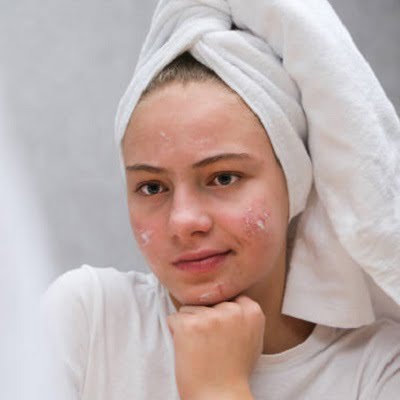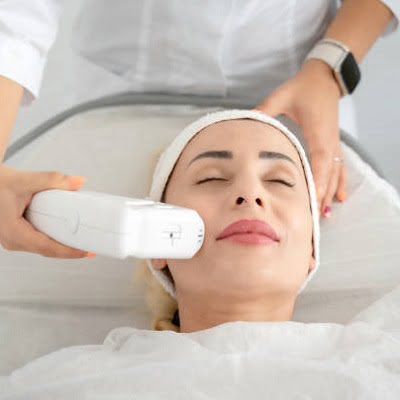
Acne, a common skin condition, can be a source of distress for many teenagers. As the quest for clear skin continues, various treatment options emerge, and laser acne treatment in Islamabad stands out as a promising solution. However, the safety of laser acne treatment for teens remains a topic of concern for both parents and adolescents.
In this comprehensive guide, we will delve into the intricacies of laser acne treatment, exploring its safety, effectiveness, and considerations for teenagers seeking this therapeutic option.
Laser Acne Treatment:
Laser acne treatment, also known as laser therapy or laser resurfacing, is a non-invasive procedure that utilizes focused laser beams to target and reduce acne lesions. The primary objective is to diminish the appearance of acne by addressing factors such as inflammation, bacteria, and excessive oil production. Laser treatments for acne typically fall into two categories: ablative and non-ablative.
Ablative Laser Treatment:
Ablative lasers work by removing the outer layer of skin, promoting collagen production, and facilitating skin regeneration. This process helps reduce the appearance of acne scars and hyperpigmentation.
Non-Ablative Laser Treatment:
Non-ablative lasers, on the other hand, penetrate the skin without causing damage to the outer layer. They stimulate collagen production, targeting the underlying causes of acne without causing visible peeling or downtime.
Safety Considerations for Teens:
While laser acne treatment has shown effectiveness in addressing acne-related concerns, its safety for teenagers is a subject that requires careful examination. Here are key considerations:
FDA Approval:
Before considering laser acne treatment for teens, it’s crucial to ensure that the specific device and procedure are FDA-approved for their age group. The FDA approval indicates the treatment has undergone rigorous testing to establish its safety and efficacy.
Skin Sensitivity:
Teenagers often have more sensitive skin compared to adults. Factors such as hormonal changes and puberty can make the skin prone to irritation. A dermatologist must assess the teenager’s skin type, sensitivity, and overall health to determine the suitability of laser treatment.
Type of Laser:
Different lasers cater to distinct skin concerns. The choice of laser should align with the type and severity of acne and the individual’s skin type. A qualified dermatologist will select an appropriate laser and customize the treatment plan accordingly.
Potential Side Effects:
While laser acne treatment is generally safe, there can be mild side effects such as redness, swelling, and temporary discomfort. It’s essential to discuss potential side effects with the dermatologist and understand how they might affect a teenager’s daily activities.
Long-Term Impact:
The long-term impact of laser acne treatment on a teenager’s skin should be thoroughly considered. Adolescents are still in the growth and development phase, and laser therapy’s effects on skin elasticity and collagen production must be carefully examined.
Effectiveness of Laser Acne Treatment:
Reduction of Acne Lesions:
Laser acne treatment has demonstrated effectiveness in reducing the number of acne lesions. The focused energy from the laser targets the sebaceous glands, minimizing oil production and preventing the formation of new acne.
Scar Reduction:
A significant advantage of laser treatment is its ability to diminish the appearance of acne scars. Ablative and non-ablative lasers can stimulate collagen production, promoting skin regeneration and improving overall skin texture.
Anti-Inflammatory Effects:
Laser therapy possesses anti-inflammatory properties, aiding in reducing redness and inflammation associated with acne. This can contribute to an overall improvement in the skin’s appearance.
Considerations for Teenagers and Parents:
Consultation with a Dermatologist:
Before opting for laser acne treatment, teenagers and their parents should schedule a consultation with a qualified dermatologist. The dermatologist will assess the severity of the acne, the teenager’s skin type, and any underlying health conditions to determine the appropriateness of laser therapy.
Realistic Expectations:
Setting realistic expectations regarding the outcome of laser acne treatment is crucial. While the procedure can significantly improve the appearance of the skin, complete eradication of acne may only be achievable in some cases.
Sun Protection:
After laser treatment, the skin becomes more susceptible to sun damage. Teenagers undergoing laser therapy should be vigilant about sun protection, using sunscreen and avoiding prolonged sun exposure to prevent complications.
Post-Treatment Care:
Following laser acne treatment, proper post-treatment care is essential. Dermatologists typically provide:
- Guidelines on skin care routines.
- Avoiding certain products.
- Managing any discomfort or side effects that may arise.
All Summed Up!
In conclusion, laser acne treatment can be a safe and effective option for teenagers struggling with persistent acne. However, it is crucial to approach this solution with careful consideration, ensuring that the chosen procedure, laser type, and post-treatment care align with the individual’s needs and skin characteristics.
Collaborating with a qualified dermatologist at SKN Cosmetic Clinic Islamabad, discussing potential risks and benefits, and maintaining realistic expectations are integral aspects of the decision-making process for teens and their parents. Ultimately, pursuing clear skin should be accompanied by a commitment to safety and informed choices, fostering a positive and confident self-image for teenagers on their journey to healthier skin.









